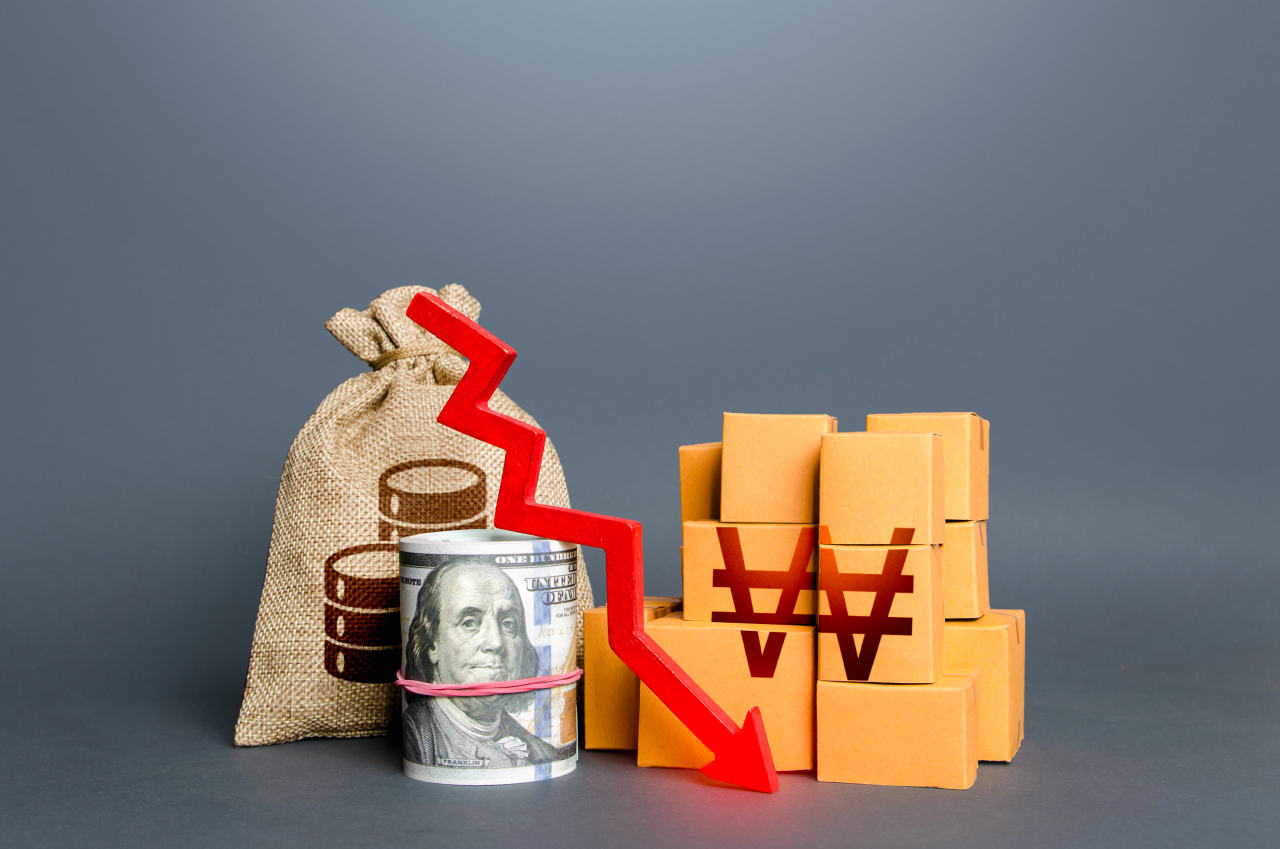 |
(123rf) |
The South Korean won could further depreciate against the US dollar in months to come as long as the US backs aggressive monetary tightening to fight raging inflation, analysts said, as the Korean currency weakened to a 13-year low of 1,326.1 won per US dollar Friday.
The breach of the 1,300 won psychological threshold -- prompted by rising US rates luring investors and soaring demand for the safe-haven asset amid global economic uncertainty -- is the latest indication that policymakers in Seoul have fewer tools to prevent economic shocks originating elsewhere.
“We will continue seeing a strong dollar unless there is a clear sign that US inflation is waning,” said Jeong Yong-teak, chief economist at IBK Securities, adding the won could perform far worse in the third quarter. “There are pressures and the currency could tumble to 1,370.”
Later this month, the US Federal Reserve looks set to back a rate hike of 75 basis points again after a month earlier, taking its range to 2.25-2.5 percent. It would be slightly above the 2.25 percent the Bank of Korea set last week after lifting it by 50 basis points for the first time to tame unruly inflation.
And the rate gap is expected to stay largely unchanged until the year-end as the US central bank, more hawkish than its Korean counterpart for now, is determined to support similar raises later in the year. The on-year June inflation there stood at 9.1 percent, its largest increase since 1981.
The reading cemented the case for a second round of a 75 basis point hike by the Fed at its July 26-27 meeting. St. Louis Fed President James Bullard backed taking the rate to a range between 3.75-4 percent by year-end, a half percentage point higher than what Fed officials have previously said.
But the Bank of Korea, which also has three more board meetings to convene this year, cannot match the pace of such tightening because, for one, it could worsen repayment burdens in a country with the world’s highest household debt. An abrupt downturn is another possibility the bank wants to avoid.
Either, the bank does not seem to be fixated on tracking US rates so closely as to prevent a widening gap and discourage investors from fleeing local markets.
“Unless we see inflation taking off to another level we hadn’t pictured, a gradual raise of 25 basis points looks most appropriate,” BOK Gov. Rhee Chang-yong told reporters last week after the seven-member board unanimously decided on lifting borrowing costs by a record level.
Whether a raise would take place at each of the meetings in August, October and November is still uncertain as the top banker did not elaborate on details.
Meanwhile, a strong dollar is expected to weigh on Asia’s fourth-largest economy since Korea would have to deal with higher energy import costs like on oil, and a resulting surge in producer and consumer prices, amid unabated inflation and shrinking growth.
According to the latest government data, Korea could see the annual increase in consumer prices this year top the 4.7 percent marked in 2008, the highest in the last 20 years. Exports in June grew at their slowest rate in 19 months.
During a two-day trip here starting Tuesday, US Treasury Secretary Janet Yellen is scheduled to meet with Korean finance authorities, including the finance minister and the central bank governor.
The South Korean finance minister declined to confirm whether the two allies would discuss renewing their existing currency swap agreement, which took effect in 2020 amid COVID-induced volatility and expired last year.
The power to resume the deal lies with the US Federal Reserve and US officials had made that clear, Finance Minister Choo Kyung-ho said Sunday, noting a discussion on policy coordination would take place.
By Choi Si-young (
siyoungchoi@heraldcorp.com)








